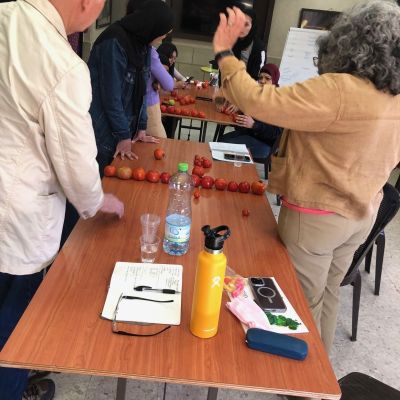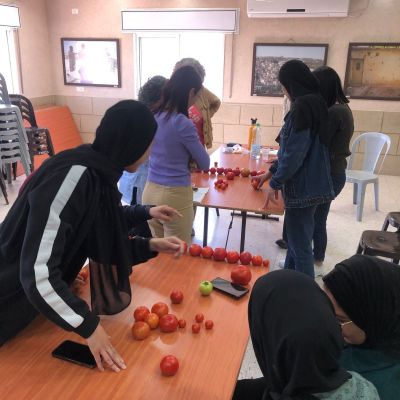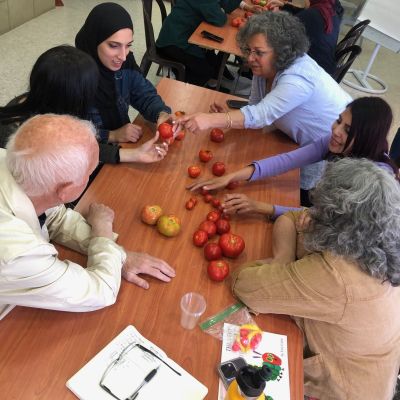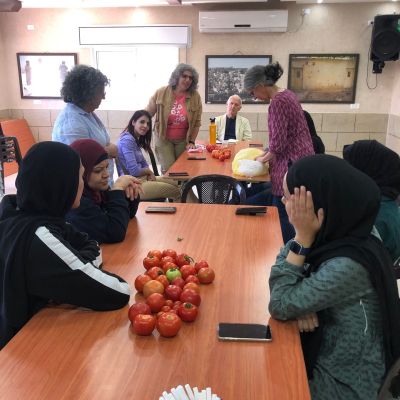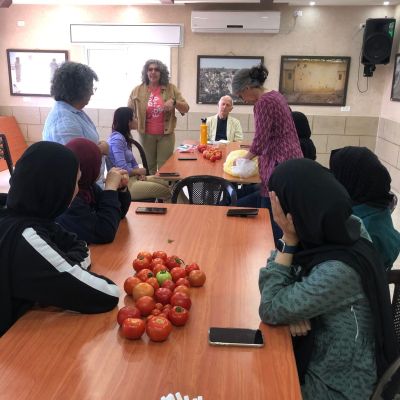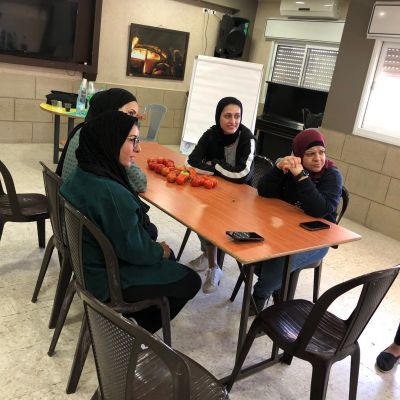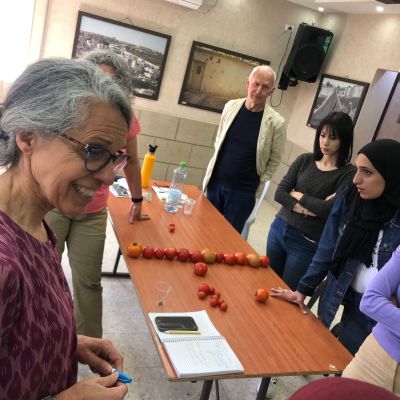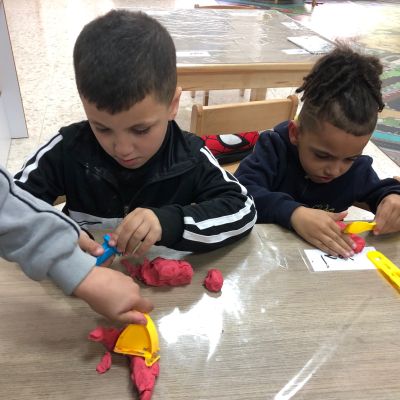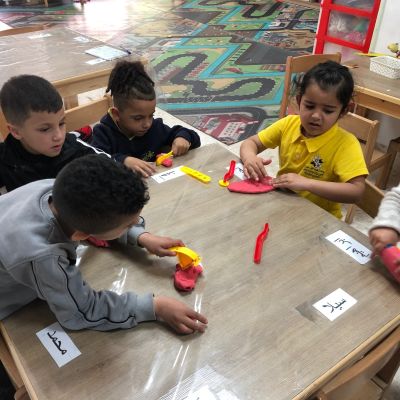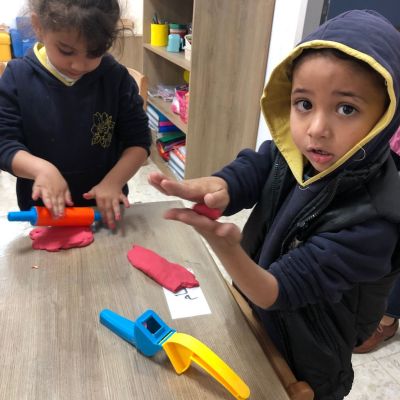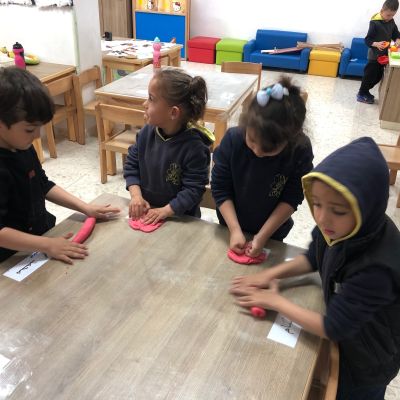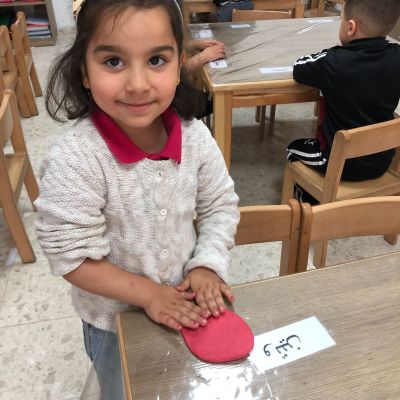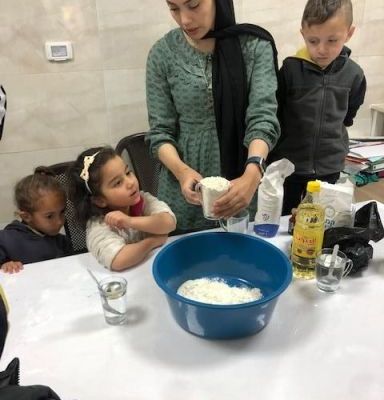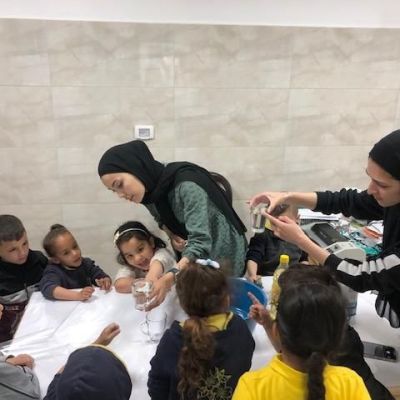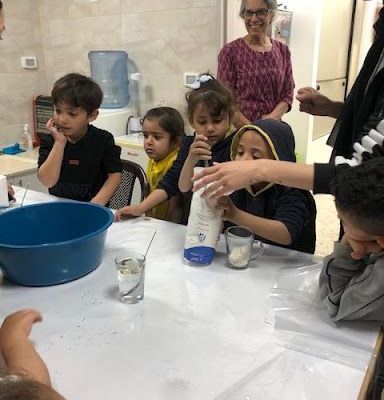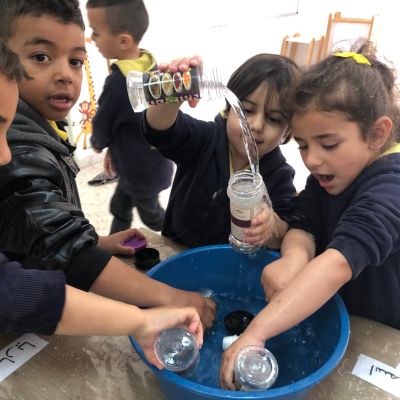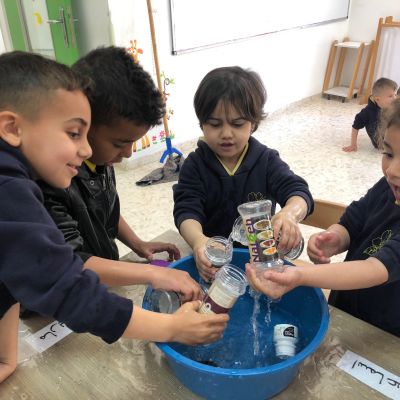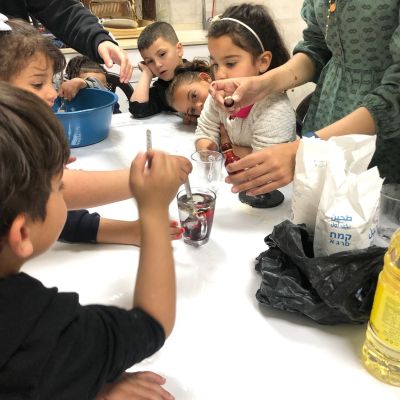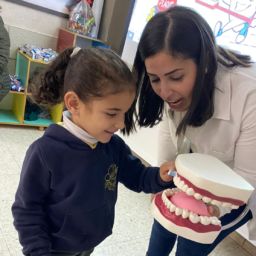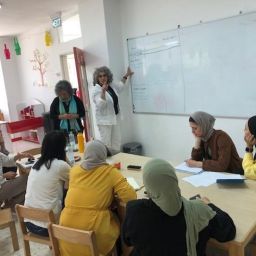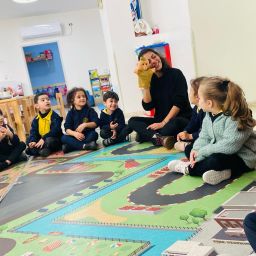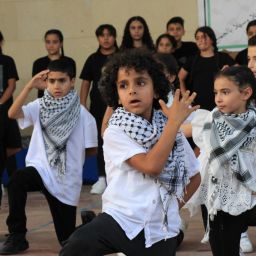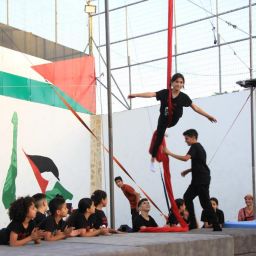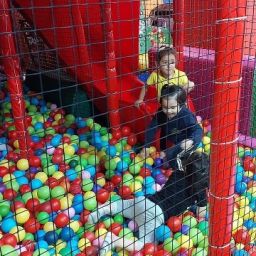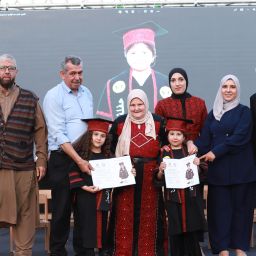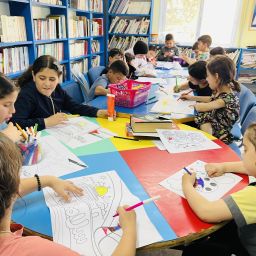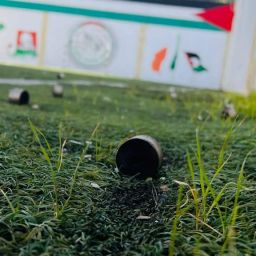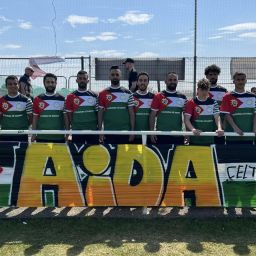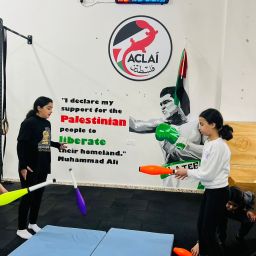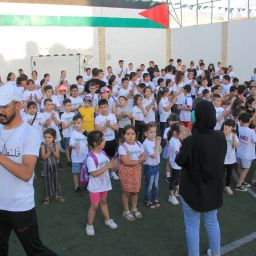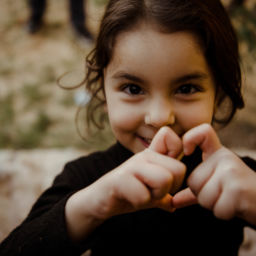Teachers’ Observation/Training Day at Zahrat Al-Yasmeen Kindergarten
Lajee Center would like to thank all donors, partners, volunteers and friends of Lajee Center. Without your support Lajee Center wouldn’t be able to continue serving the community and doing all these activities.
At the end of June, we conducted a teacher's observation and training with Merrie, Kathy and Beverly from the 1for3 organisation at Zahrat al Yasmeen Kindergarten. The 1for3 organization specializes in the intersection of water, food, health, and education, which living under occupation constantly exacerbates for refugees.
The day was filled with many activities for both the children and the teachers. The children made their own play dough using salt, water and food colouring. Each child took turns pouring the ingredients and stirring them up as they excitedly anticipated the final results. How happy they all were at the end to play with their hand-made, chemical free play dough in their class!
Later in the day, the teachers had their own fun with a tomato workshop that Beverly hosted! The teachers were split into two groups and given about 30 tomatoes for the workshop activities. They worked as a team to divide the tomatoes into "good" and "bad" piles. How did they pick and choose which tomatoes were good and which were bad? The majority answered from experience from learning how to pick and choose tomatoes for consumption from our mothers. This brought up the question of how children’s behaviors inside the classroom, like our own, are preconditioned by previous knowledge they’ve gained at home or from what they see and hear in their environments. As children attend school, their knowledge expands, and they develop new habits and ideas about the world. As we ended the workshop, one last question was brought up: is a tomato a fruit or a vegetable? The group was split between the two answers. We know scientifically that a tomato is considered a fruit, however, we all consider it a vegetable as it is mainly used for cooking savory meals. The main takeaway from this question, and ultimately from the workshop, was that although there are objective facts in the world, we can also have different opinions on things. That's alright, as long as we can discuss and respect each other while doing so. We can also have different views of the world or be wrong with our answers. However, we should allow people, especially when teaching young children, to give their opinion or answer even when it's wrong. This is so they can learn from it. The goals of this workshop were several, including teaching children using tomatoes with the following:
- To teach mathematics such as counting, addition, subtraction, and division
- Learning how to compare and contrast items that look the same but are different in size, weight, texture and rigidity.
- Teachers can use tomatoes as an introduction to science by planting the seeds, and watching them grow


